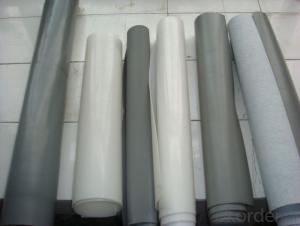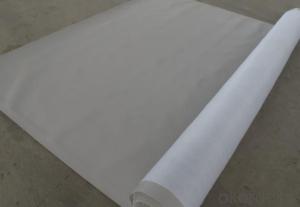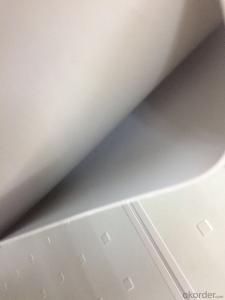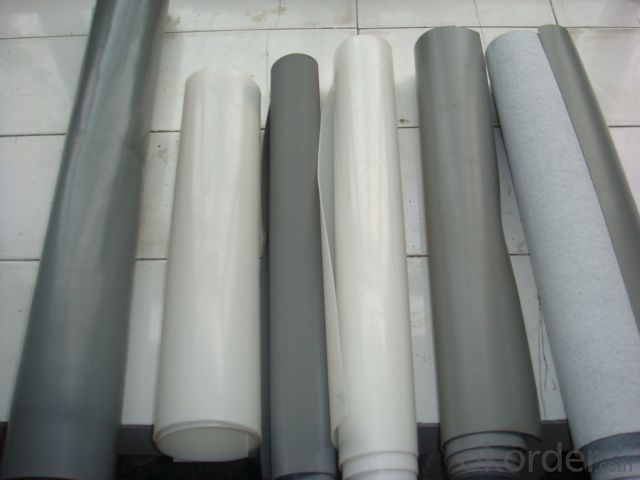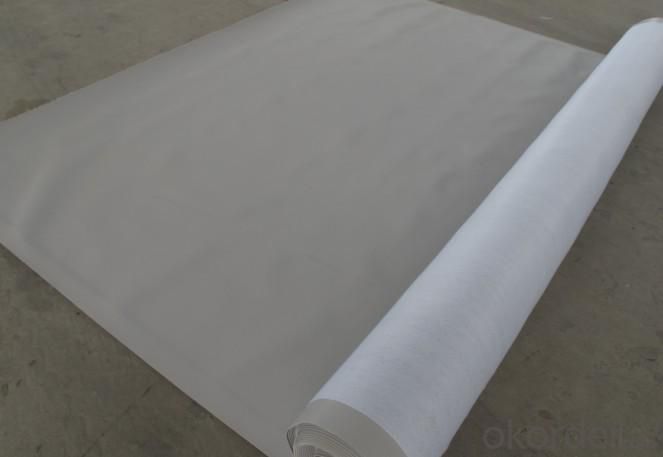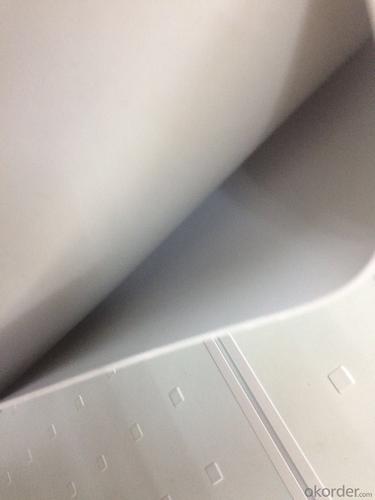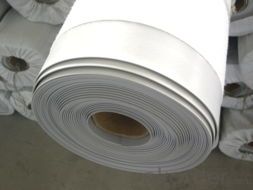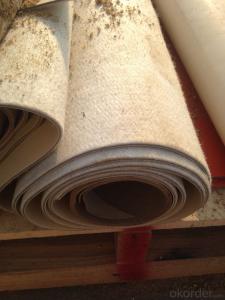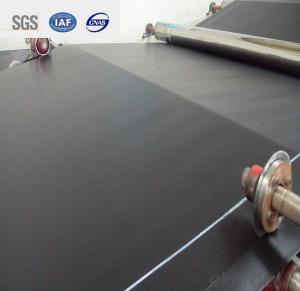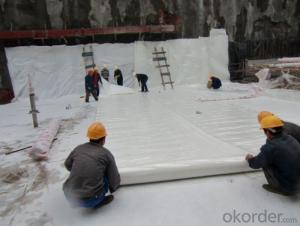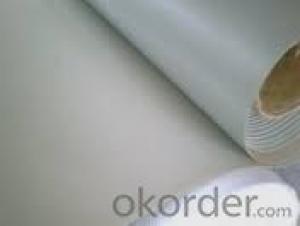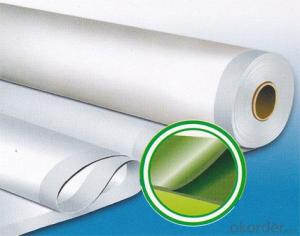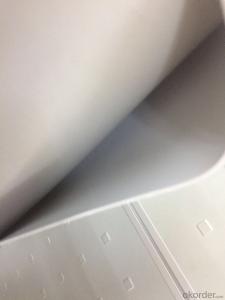PVC Waterproofing Membrane 1.5 mm from Manufactory
- Loading Port:
- Tianjin
- Payment Terms:
- TT OR LC
- Min Order Qty:
- 5000 m²
- Supply Capability:
- 100000 m²/month
OKorder Service Pledge
OKorder Financial Service
You Might Also Like
PVC waterproofing membrane
Polyvinyl Chloride (PVC) waterproof membrane is a new polymer waterproof membrane which is made from polyvinyl chloride resin, and mixed with plasticizer, filler, antioxygen, ultraviolet absorber and other auxiliaries.
Product Applications:
1. All kinds of roofs, such as steel structure roof, planted roof etc.
2. Underground engineering, such as basement, subways, tunnels, air raid shelter, etc.
3. Other projects like artificial lake, dam, water reservoir, grain storehouse, etc.
Product Features:
1. Excellent aging resistance.
2. Root resistant penetration, specially used on planting roof.
3. Welding installation. Joints are solid and environment friendly, no pollution.
4. High tensile strength, good elongation and dimensional stability.
5. Good plasticity, easy and suitable for details installation.
6. Fireproof. Fire extinguished out of the ignition resource.
Product Specifications:
1. Size: 2.05(width)*20m (length), as clients' request
2. Thickness: 1.2mm; 1.5mm; 2.0mm, etc
3. Type: Homogeneous, Reinforced, Fabric back
4. Exposed and Non-exposed
5. Color: white, Grey or customized
FAQ:
Q: Can I get samples?
A: Yes, we could arrange samples for free.
Q: Can I do the third party testing before loading?
A: Yes, we could accept the third party testing.
Q: Which kind of payment in your company?
A: We could accept TT, LC at sight, etc.
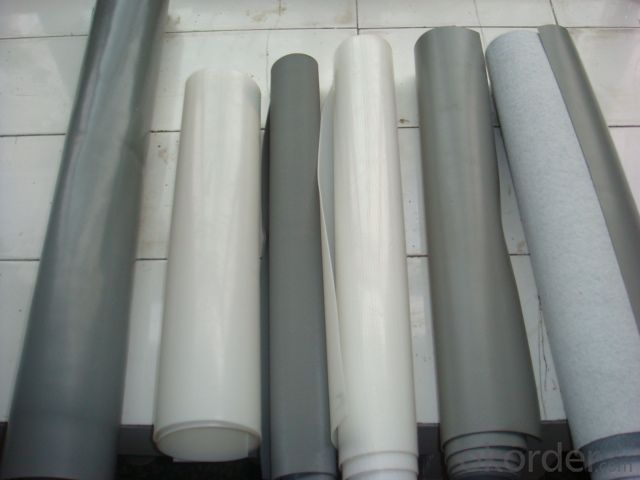
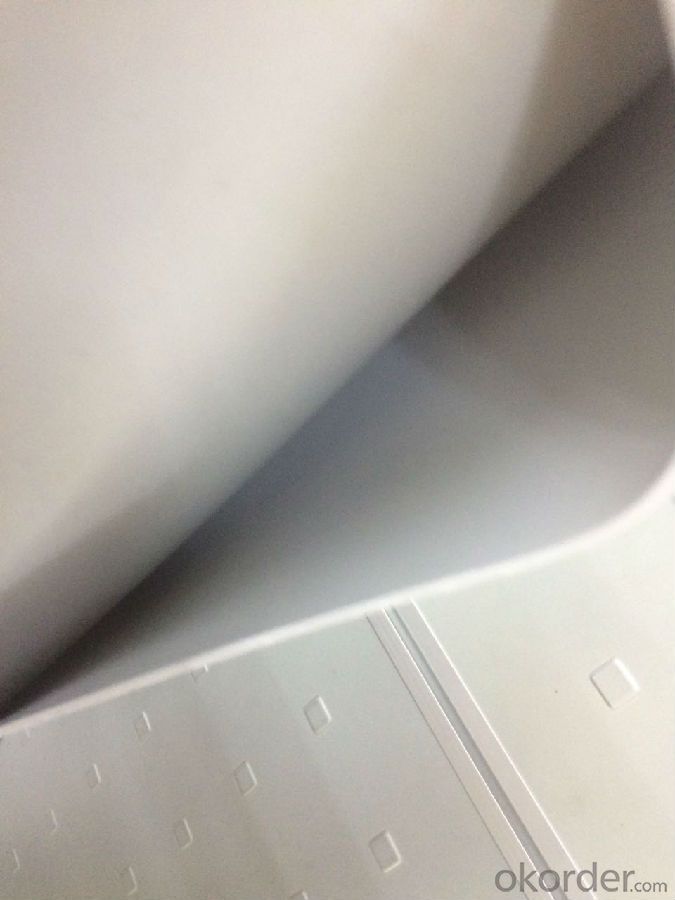
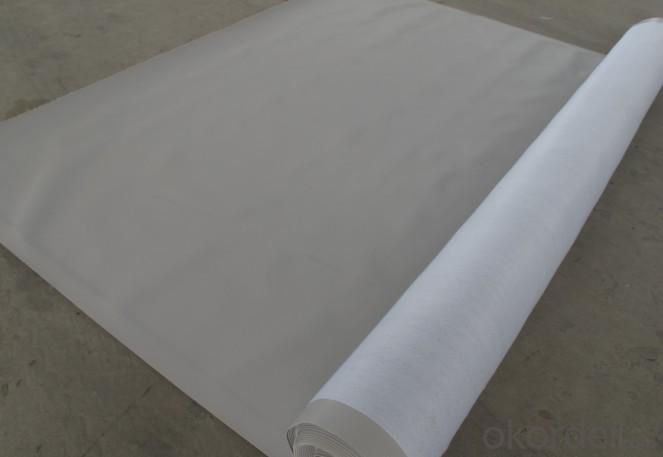
- Q: Can waterproofing membranes be used on concrete tunnels?
- Yes, waterproofing membranes can be used on concrete tunnels. Waterproofing membranes are commonly used in construction to prevent water infiltration and protect structures, including concrete tunnels, from moisture damage. These membranes create a barrier that prevents water from seeping through the concrete and into the tunnel, ensuring its durability and longevity.
- Q: Can a waterproofing membrane be applied over existing coatings?
- Indeed, it is feasible to apply a waterproofing membrane on top of current coatings. Nevertheless, it is crucial to acknowledge that the effectiveness of this process relies on various factors, including the state and compatibility of the existing coatings, the specific type of waterproofing membrane employed, and the preparation of the surface before application. It is advisable to seek advice and instructions from a professional or the manufacturer of the waterproofing membrane regarding the application procedure. Furthermore, a comprehensive examination of the current coatings should be performed to verify their quality and suitability for the application of the waterproofing membrane.
- Q: Can a waterproofing membrane be used for a crawl space?
- Indeed, a crawl space can benefit from the application of a waterproofing membrane. Given their vulnerability to moisture and water infiltration, crawl spaces can experience a range of problems including the growth of mold, structural deterioration, and unpleasant odors. By employing a waterproofing membrane, the infiltration of water and moisture into the crawl space can be effectively impeded. Typically, this membrane is affixed to the walls and floors of the crawl space, forming a secure seal that prevents any water from seeping through. Consequently, this membrane serves as an exceptional remedy for the waterproofing of crawl spaces. Furthermore, certain waterproofing membranes possess antimicrobial properties, thereby further diminishing the likelihood of mold and mildew growth within the crawl space.
- Q: Sbs modified asphalt waterproof membrane polyester type Ⅰ type Ⅱ how to distinguish
- These two kinds of materials from the current surface is exactly the same, if it is experienced people, you can through the tension on the sheet asphalt to determine the initial situation, if the domestic refrigerator can reach -25 ℃ low temperature, can also be low temperature flexibility Not broken after the initial judgment). To correctly determine the need for sample inspection.
- Q: Can a waterproofing membrane be used for a school building foundation?
- Yes, a waterproofing membrane can be used for a school building foundation. Waterproofing membranes are designed to prevent water infiltration into structures, and they are commonly used in various construction applications, including building foundations. By installing a waterproofing membrane on the foundation walls, it can help to protect the building from water damage and prevent moisture-related issues such as mold, deterioration, and structural damage. This is particularly important for school buildings, as they often have extensive foundations and are subject to heavy usage and potential water exposure. Therefore, using a waterproofing membrane can be an effective solution to ensure the longevity and structural integrity of the school building foundation.
- Q: Can a waterproofing membrane be used in ponds or reservoirs?
- Yes, a waterproofing membrane can be used in ponds or reservoirs. Waterproofing membranes are designed to create a barrier that prevents water from seeping through, making them an effective solution for creating a watertight seal in ponds or reservoirs.
- Q: Where are waterproofing membranes commonly used?
- Waterproofing membranes are commonly used in a variety of applications to prevent water infiltration and protect structures from moisture damage. Some of the common areas where waterproofing membranes are used include: 1. Basements: Waterproofing membranes are extensively used in basements to prevent water seepage through foundation walls and floors. They create a barrier that keeps water out and helps maintain a dry and habitable space. 2. Roofs: Waterproofing membranes are widely used in roofing systems to protect buildings from rain, snow, and other elements. They are applied beneath the roofing materials and act as a barrier against water penetration, ensuring the structural integrity of the roof. 3. Bathrooms and wet areas: Waterproofing membranes are essential in bathrooms, showers, and other wet areas to prevent water from seeping into the walls and floors. They create a watertight seal that helps to avoid mold growth, water damage, and structural issues. 4. Balconies and terraces: Waterproofing membranes are commonly applied to balconies, terraces, and other outdoor areas to protect them from water damage and ensure durability. They provide a protective layer that keeps water from penetrating the surface and causing deterioration. 5. Swimming pools: Waterproofing membranes are extensively used in the construction of swimming pools to prevent water leakage. They are applied to the pool shell and provide a watertight seal, ensuring that the pool remains structurally sound and water-tight. 6. Tunnels and underground structures: Waterproofing membranes are used in tunnels and underground structures to protect them from groundwater seepage. They form a waterproof barrier that prevents water from infiltrating and causing damage to the structure. 7. Planter boxes and green roofs: Waterproofing membranes are commonly used in planter boxes and green roofs to prevent water from seeping into the building structure. They create a barrier that retains moisture within the planter or green roof while preventing water infiltration into the building. Overall, waterproofing membranes play a crucial role in various construction projects, ensuring the protection and longevity of structures by preventing water damage and moisture-related issues.
- Q: Can a waterproofing membrane be used in conjunction with insulation materials?
- Yes, a waterproofing membrane can be used in conjunction with insulation materials. In fact, it is often recommended to use both together in order to provide a comprehensive solution for protecting buildings from moisture and enhancing energy efficiency. The waterproofing membrane acts as a barrier to prevent water infiltration, while insulation materials help to regulate temperature and reduce heat loss or gain. By combining these two components, the building envelope can be effectively protected from water damage and insulated to maintain a comfortable indoor environment. It is important to ensure that the waterproofing membrane is properly installed and compatible with the insulation materials to achieve optimal performance and longevity.
- Q: Can waterproofing membranes be used on concrete pipes?
- Concrete pipes can indeed utilize waterproofing membranes. These membranes are frequently employed to thwart the ingress of water and safeguard concrete structures against moisture-induced harm. Like any other concrete structure, concrete pipes are vulnerable to water infiltration, which can result in decay and a shortened lifespan. By applying a waterproofing membrane to concrete pipes, a barrier against water can be established, thus averting potential complications such as leaks, cracks, and corrosion. Typically, the membrane is administered to the exterior of the pipe, forming a protective layer that thwarts water from permeating the concrete. This measure contributes to prolonging the pipes' lifespan and guaranteeing their long-standing durability.
- Q: Can a waterproofing membrane be used on precast galvanized surfaces?
- Yes, a waterproofing membrane can be used on precast galvanized surfaces. The waterproofing membrane is designed to provide a protective barrier against water penetration, and it can be applied to various surfaces including precast galvanized surfaces. The membrane helps to prevent water from seeping into the surface, protecting the underlying structure from moisture damage. However, it is important to ensure that the precast galvanized surface is properly prepared before applying the membrane, as any loose or flaking galvanized coating should be removed to ensure proper adhesion of the membrane. Additionally, it is advisable to consult with the manufacturer or supplier of the waterproofing membrane to ensure that it is compatible with galvanized surfaces and to follow their recommended application guidelines for best results.
Send your message to us
PVC Waterproofing Membrane 1.5 mm from Manufactory
- Loading Port:
- Tianjin
- Payment Terms:
- TT OR LC
- Min Order Qty:
- 5000 m²
- Supply Capability:
- 100000 m²/month
OKorder Service Pledge
OKorder Financial Service
Similar products
Hot products
Hot Searches
Related keywords
